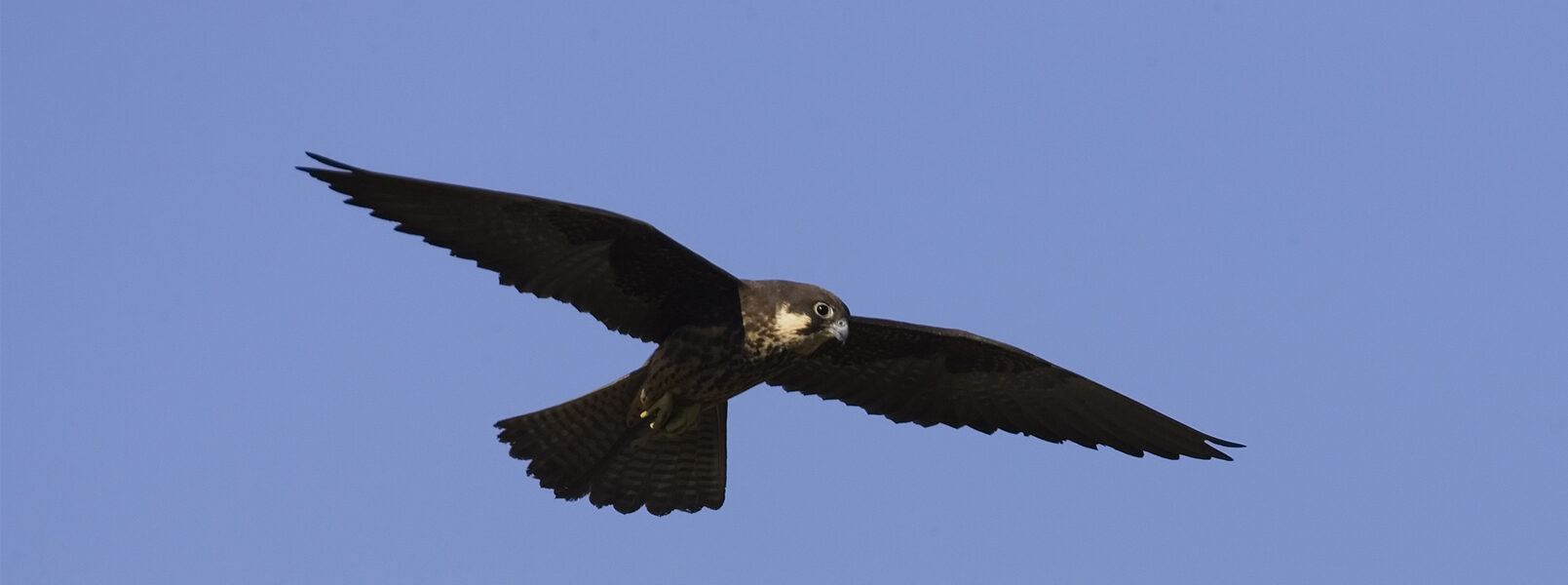SAFEGUARDING ELEONORA’S FALCONS IN GREECE

Species
Eleonora's falcon
Organization
HELLENIC ORNITHOLOGICAL SOCIETY
Duration
January 2024 - December 2026
Region
Greece
THE NEED
Greece hosts more than three-quarters of Eleonora’s falcon’s (Falco eleonorae) global breeding population (about 12,300 pairs), thus making it one of the country’s most emblematic species. The present conservation status of the species is assessed as Least Concern (LC), however, recent studies have shown substantial changes in population sizes and spatial distributions, indicating a potential decrease and/or displacement of the species.
In addition, it has been well documented that, during the last two decades, new threats have emerged for the species mainly connected or attributed to climate change, such as reduction of breeding success due to heat stress, habitat alteration at both the breeding and wintering grounds, food shortage, and reduced freshwater availability.
Despite being the most important breeding area for the species worldwide, Greece has failed to develop and implement a systematic monitoring scheme for Eleonora’s falcon.
THE PROGRAM
The program’s primary activity will be to conduct a national census for Eleonora’s falcon, 20 years after the previous one. This will allow monitoring of the breeding success of the species and re-evaluating its population status on a detailed spatial scale, contributing this way towards an update of the Species National Red List Assessment. The census will cover at least 1.000 islands, islets and rocky formations. In parallel with the census activities, the fieldwork teams will gather data on the availability of freshwater sources. This will provide useful insight into this less- studied limiting factor for Eleonora’s falcon, also considered to be important for the majority of other taxa- rare, endangered or even endemic themselves- sharing the same habitat. Assessment of freshwater availability will be conducted in at least 10 major colonies.
A campaign to raise awareness about the species will run as part of the program. This will aim to inform local communities and stakeholders in at least 3 islands with significant colonies.
Additionally, an international experts’ network will be established and supported, enhancing thus the work conducted within the framework of the program.